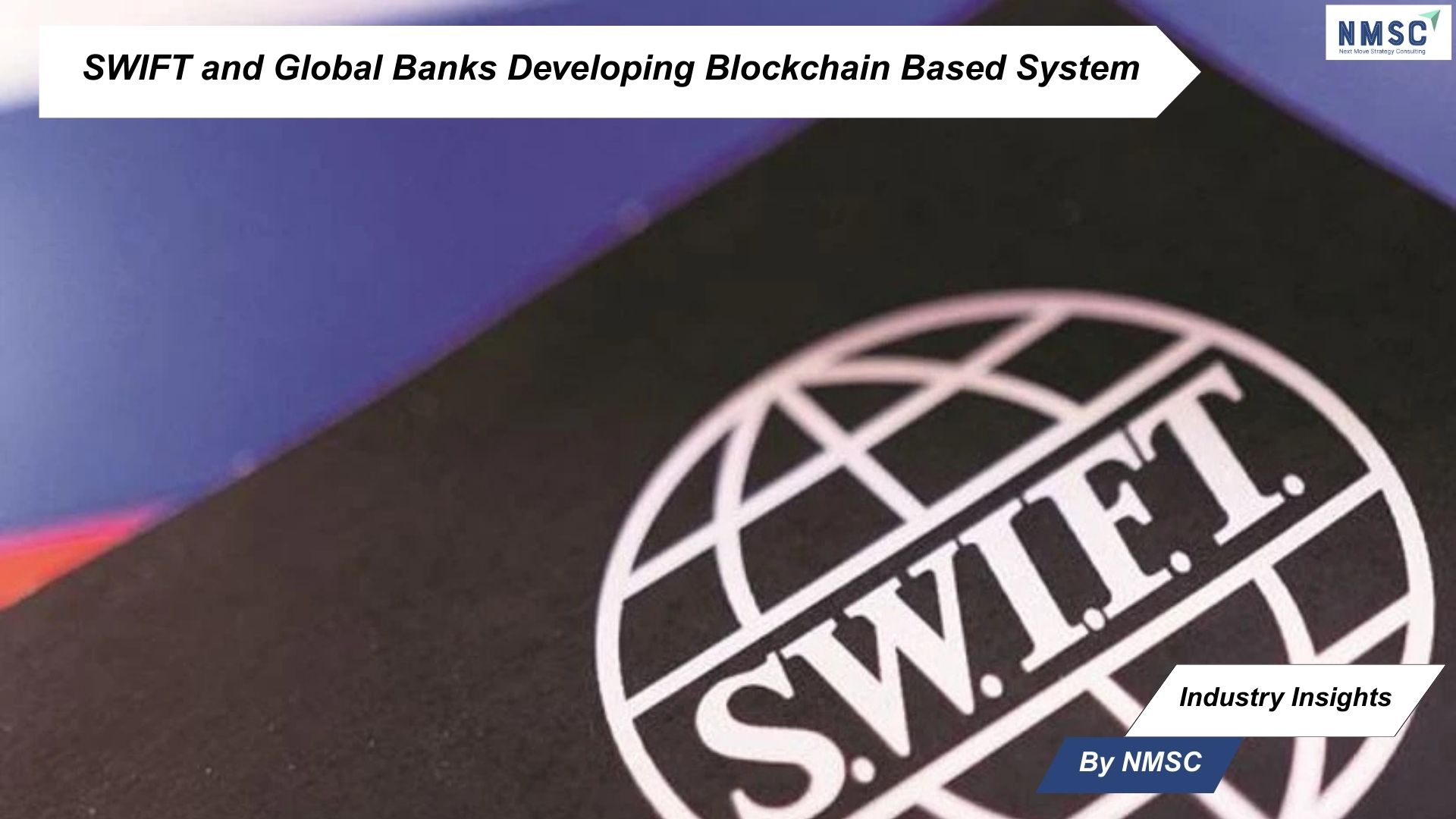SWIFT and Global Banks Developing Blockchain Based System
Published: 2025-09-29

Industry Insight from Next Move Strategy Consulting
SWIFT, the global financial messaging network, along with over 30 international banks, announced on Monday that they are accelerating efforts to make cross-border payments instant through a system designed to support emerging forms of digital money. The organization, which plays a central role in the world’s financial infrastructure, said the institutions are jointly developing a blockchain-powered “shared digital ledger” aimed at modernizing international banking transactions.
SWIFT Sets Sights on Real-Time Global Payments
Although no fixed timeline has been set, the initiative will begin by focusing on enabling real-time, 24/7 cross-border transactions, which are expected to significantly reduce costs compared to the current system that often takes several days.
Headquartered in Belgium, SWIFT also aims to expand on recent pilot programs to ensure its systems are “interoperable” with emerging platforms designed for stablecoins, tokenized bank deposits, and central bank digital currencies (CBDCs) under development by major institutions such as the People’s Bank of China and the European Central Bank.
A major strength of SWIFT lies in its established network, which already spans more than 200 countries and connects over 11,000 banks worldwide, facilitating the transfer of trillions of dollars every day.
SWIFT Looks to Reinvent Amid Criticism and Rise of Stablecoins
Eric Trump, son of U.S. President Donald Trump and a vocal supporter of cryptocurrencies, recently labeled SWIFT as “antiquated.” In response, SWIFT is seeking to evolve by integrating blockchain technology while continuing to deliver the compliance and resilience that traditional banks depend on.
Meanwhile, stablecoins are quickly transitioning from niche crypto assets to mainstream financial instruments. According to a recent report by Citi, the circulation of stablecoins could reach as much as $4 trillion by 2030, with annual trade conducted using them projected to hit $100 trillion.
Global Banks and SWIFT Push Ahead with Digital Currency Ledger
Nearly 90% of the world’s central banks are now actively exploring digital versions of their national currencies in an effort to stay ahead of financial innovation.
According to SWIFT, the envisioned shared digital ledger will serve as a secure, real-time system that records, sequences, and validates transactions while enforcing rules through smart contracts.
The initiative is being developed with the support of more than 30 leading global financial institutions, including JPMorgan, HSBC, Deutsche Bank, MUFG, BNP Paribas, Santander, and OCBC, alongside several banks from the Middle East and Africa.
Positive Impact of SWIFT Blockchain Initiative on the Blockchain Market
Transforming Cross-Border Payments with Blockchain
The collaboration between SWIFT and over 30 global banks to develop a blockchain-based shared digital ledger is set to significantly boost the adoption of blockchain technology in mainstream finance. By addressing current inefficiencies in cross-border transactions, this initiative can enhance the credibility, utility, and scalability of blockchain solutions across the global financial ecosystem.
Key Positive Impacts
Accelerated Mainstream Adoption: The involvement of leading banks like JPMorgan, HSBC, and Deutsche Bank demonstrates institutional trust in blockchain technology, encouraging wider adoption.
Improved Efficiency: Real-time 24/7 transactions reduce delays and costs, showcasing blockchain’s practical advantages over traditional systems.
Interoperability with Digital Assets: Integration with stablecoins, tokenized deposits, and CBDCs expands blockchain’s role beyond cryptocurrencies into mainstream finance.
Smart Contract Utilization: Automated enforcement of transaction rules enhances security, reduces human error, and boosts operational efficiency.
Global Standardization: A shared ledger across multiple banks can set benchmarks for global blockchain-based financial transactions, creating a framework for future innovations.
Overall, SWIFT’s blockchain initiative is likely to generate a positive ripple effect, reinforcing blockchain’s credibility and accelerating its integration into traditional financial systems worldwide.
Source: Reuters
Prepared by: Next Move Strategy Consulting
About the Author
 Karabi Sonowal is an experienced SEO Executive and Content Writer in digital marketing. She excels in SEO, content creation, and data-driven strategies that boost online visibility and engagement. Known for simplifying complex concepts, Karabi creates impactful content aligned with industry trends
Karabi Sonowal is an experienced SEO Executive and Content Writer in digital marketing. She excels in SEO, content creation, and data-driven strategies that boost online visibility and engagement. Known for simplifying complex concepts, Karabi creates impactful content aligned with industry trends
About the Reviewer
 Sanyukta Deb is a skilled Content Writer and Digital Marketing Team Leader, specializing in online visibility strategies and data-driven campaigns. She excels at creating audience-focused content that boosts brand presence and engagement, while also pursuing creative projects and design interests
Sanyukta Deb is a skilled Content Writer and Digital Marketing Team Leader, specializing in online visibility strategies and data-driven campaigns. She excels at creating audience-focused content that boosts brand presence and engagement, while also pursuing creative projects and design interests















Add Comment